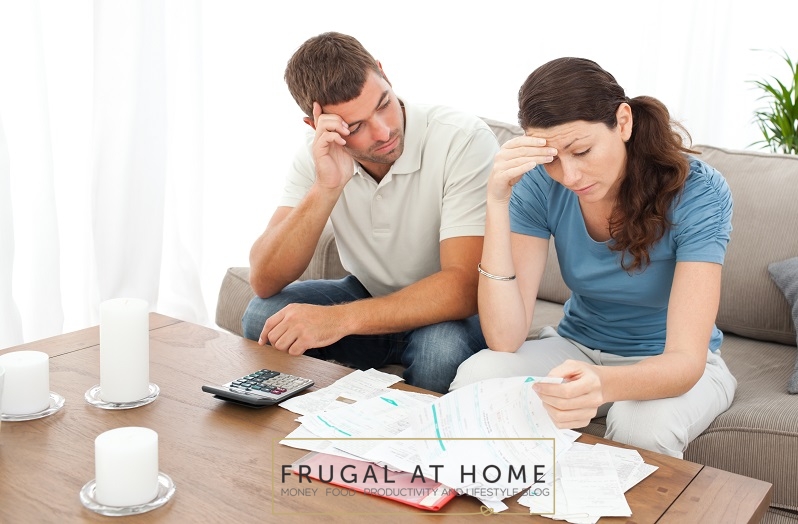
A unique formula that will show you how to pay off your credit card debt. I will also explain which debt you should focus on tackling first and how each type of debt effects you and your credit score.
75% of Americans live paycheck-to-paycheck, and they are in debt. Most of us have some type of debt; car loan, student loans, medical bills and credit cards.
But how do you know which debt effects your credit history and when it comes time which debt should you pay off first.
Not all debt is bad debt and there is a formula to which debt should be tackled first. Some debt will effect you, your family and credit history more than other debts.
I will explain the types of debts, how they can effect you, and show you the formula I used to determine which debt should be paid off first.
If you miss a number of payments on a specific debt, you will not only get charged penalties, but your loan will go into default and collection. In other circumstances, if you miss a number of payments your home and car will repossessed by the lender.
For example, if you miss a student loan payment or a medical bill, they will not take back your degree or put you in prison for missing a medical bill payment. Your loan will go into default and collection and you will have to pay a significant amount in penalties.
However, if you don’t pay your rent you will be evicted. If you miss your mortgage payment the bank will foreclose on your home and if you miss your payment, your car will get repossessed.
I am not recommending you put yourself at risk and have a loan go into default. At the very least you should make the minimum payment to show good payment history, keep the loan out of collections and not have any negative effects on your credit history.
But there is a formula that I used to get my family out of more than $300,000 worth of debt. I spent countless hours listening and studying financial experts.
What I found was that no one advice worked to help us tackle our debt. I decided to create my own formula to get out of debt.
Below you will find the formula that I used to get out of over $300,000 worth of debt. You will not find this advice anywhere, it is a combination what has worked for me and my family to tackle our debt.
1. Pay off your debt as soon as possible.
Paying off your debt is the first step. It is important to determine what debt you will be paying off first.
I recommend two approaches when deciding which debt to tackle first.
- List your debt by interest rate, from highest to lowest
- From this list, pick the loan with the lowest balance
- That is the loan you need to tackle first
For example, if you have a credit card with an outstanding balance of $8,000 at 5% interest (Card A), a credit card with an outstanding balance of $15,000 at 12% (Card B) and a credit card with a $6,000 balance with a 7% interest rate (Card C).
Which would you pay off first? You would pay off the highest interest loan with the lowest balance. That would be Card C with $6,000 balance at 7% interest.
In most cases, people would tackle the highest interest debt, $15,000 at 12%. The problem with this strategy is that when tackling a large outstanding debt you will become discouraged quickly.
Paying down your smallest debt, with the highest interest rate first will create a snowball effect and quickly have you tacking more of your debt in a shorter period of time.
2. Which debt should take priority?
Not all debt is bad debt and not all debt has the same affect on your credit rating.
Should you pay off your student loan? Should you pay off your car loan? Should you pay off your credit card?
Which debt should take priority?
Credit Card
Credit card, also called consumer debt should take priority when looking to pay down your debt.
You would follow the three step process:
- List your debt by interest rate, from highest to lowest
- From this list, pick the loan with the lowest balance
- That is the loan you need to tackle first
Car Loan
The interest rate of car loan is directly affected by the borrowers credit history. If you have a good credit history your interest rate could be very manageable.
I would highly recommend that paying off your car, after paying down your consumer debt. However, if your interest rate is very high, you might need to tackle your car loan.
Remember, if you don’t pay for your car loan, not only will it affect your credit history, but you car will get repossessed.
If you don’t pay your credit card, it will affect your credit score, but the bank will not reposes your consumer products your purchased.
Student Loans
A large percentage of student loans don’t carry a high interest rate, and are very manageable.
It is important that you keep your student loan payments current and not default on the loan. When a student loan goes into default it carries many penalties.
If a student loan gets into default, it is crucial to work with the lender to get it out of default and establish a manageable minimum payment.
Student loan lenders are very willing to work with you to help you establish a good repayment schedule.
Check out this article on Forbes, click here.

Hi, I love your post.